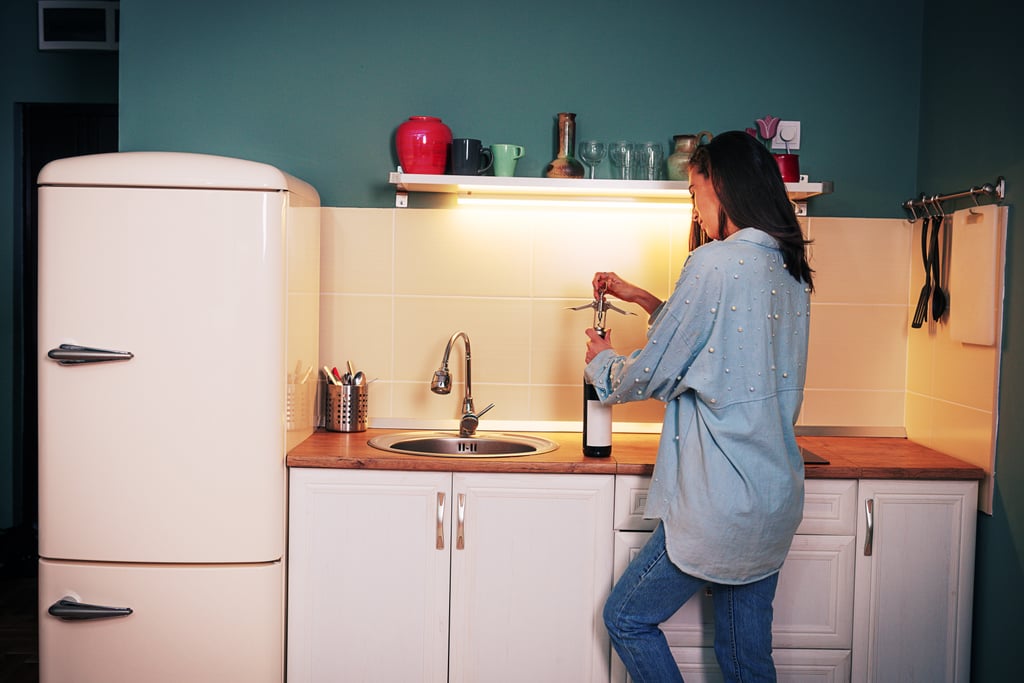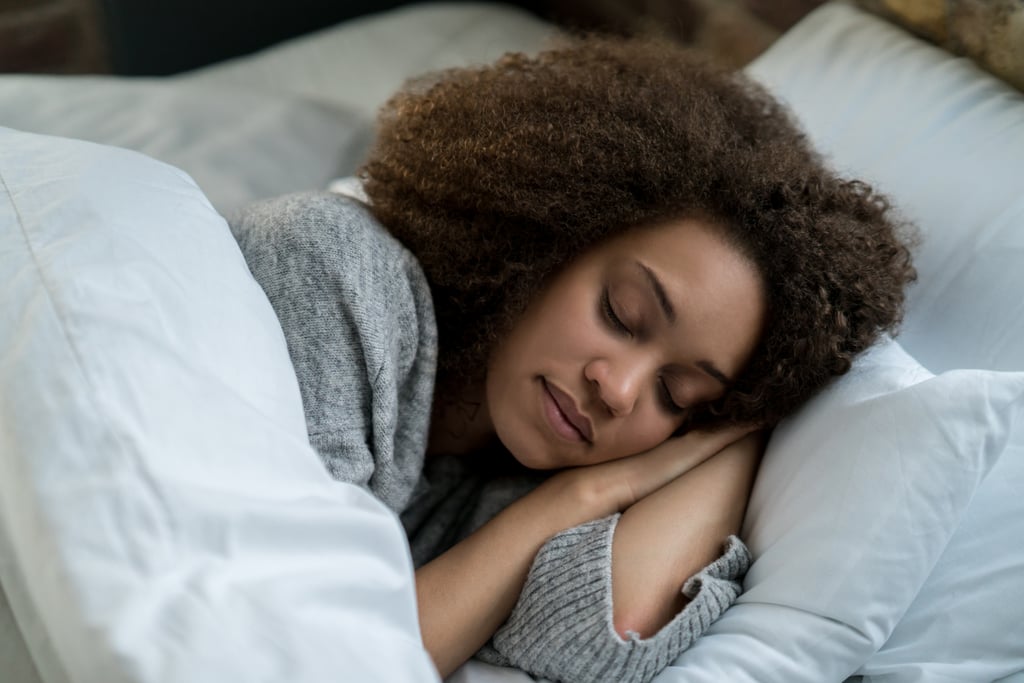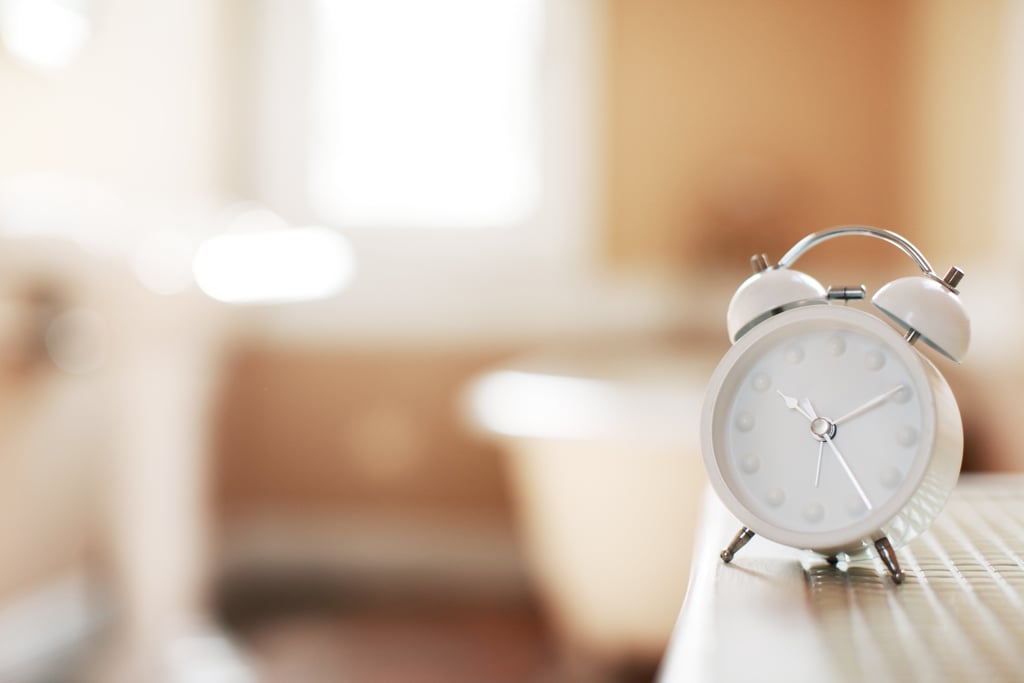Sleep is a pretty sweet deal: I mean, who doesn't want to slip under the covers after a long day and get some shut-eye that will greatly benefit your body and brain function? It's shown that sleep helps balance our hormones [1], aids with memory [2], and even plays a part in muscle recovery [3]. Sleep is, well, important — but there are a large number of myths that people are stuck on, and we're here to debunk a few.
Rebecca Robbins, PhD, sleep researcher at NYU Langone Health [4] in New York City, recently participated in a paper along with other experts to identify false beliefs about sleep. It was published this past February in the Journal of the National Sleep Foundation and includes 20 misconceptions about slumber the public is exposed to, along with ratings on how "false" these myths are and reasons why, according to evidence, they're exactly that: myths. "We wrote this paper because a lot of these myths continue despite evidence to the contrary in many cases," Dr. Robbins told POPSUGAR. Check out three of the top myths Dr. Robbins discussed with us — you'll be surprised at what you find out!
Myth: Alcohol Before Bed Will Improve Your Sleep
While alcohol can certainly put you to sleep — and it's often referred to as a "nightcap" — the paper on sleep myths explained that it will cause sleep disturbances during the night. Alcohol can worsen sleep apnea symptoms [6] and delay the onset of REM [7]. REM sleep is the deepest part of your sleep cycle and makes up about 20 to 25 percent of adult sleep [8]. It's vital for brain restoration.
In terms of alcohol consumption, "if you toss and turn more than usual, or sleep for a seemingly sufficient amount of time but wake up exhausted after a night of drinking, it may mean you have had too much," Dr. Robbins said.
Myth: It's Better to Sleep in a Warmer Bedroom
Dr. Robbins said that a temperature between 18 to 20 degrees is optimal (experts have talked to us about this before [9]) for sleep, and anything higher than that can cause sleep fragmentation [10] and nightmares.
Room temperature is really important when it comes to sleep, she explained, because we want our body temperature to dip low. This dip in core body temperature is associated with sleep onset, and "in experimental studies in warm rooms, or if we put a heating pad under subjects while they sleep, they'll have more nightmares and their sleep will be less restorative," Dr. Robbins said.
Myth: Adults Can Get By on Five Hours or Fewer of Sleep
One of the most common myths is that some people can get by on five hours or fewer of sleep, Dr. Robbins said. They think that they'll be able to maintain good health overall, which "of course, is a myth," she clarified. "Evidence shows resoundingly that we do need at least seven hours of sleep for optimal health and wellness." The American Academy of Sleep Medicine [11] (AASM) and Sleep Research Society (SRS) recommend that adults sleep at least seven hours per night [12].
The paper says that while there is some preliminary evidence showing some people can function well on less than the recommended hours of sleep, constantly getting five hours or less can increase your chances of cardiovascular disease and early mortality [13]. And, it's also important to note that sleeping too much may be an indication that there's an underlying health concern [14].
Dr. Robbins has a few key tips for you to follow if you're having trouble getting that full seven hours of sleep in per night:
- Find a sleep schedule that you can follow as closely as possible from Monday to Monday.
- Resist sleeping in. This will throw your body into jet lag and make it difficult to fall asleep the next night.
- Create a bedroom sleep sanctuary. You want to walk into your bedroom and be instantly relaxed. Make sure your pillow and mattress are supportive for a great night's sleep (soft sheets help, too!).
- Start a soothing bedtime routine [15]. Turn off your phone (blue light emitted disturbs your sleep cycle [16]), use aromatherapy, or journal about something [17] positive from your day.
For important advances in sleep research, expert advice, and bedtime best practices, check out POPSUGAR's page devoted entirely to sleep [18].



